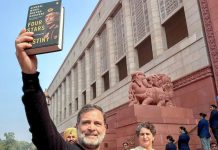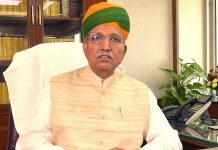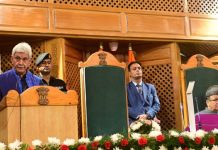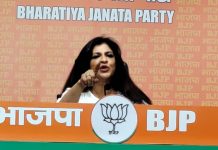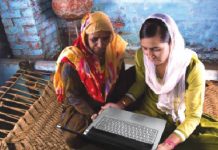Separatism in Kashmir is witnessing a dramatic decline, with political groups severing ties with the separatist ideology and violence statistics plummeting. As Union Home Minister Amit Shah declares separatism a “history,” the question remains—will this newfound calm endure? A report by Riyaz Wani
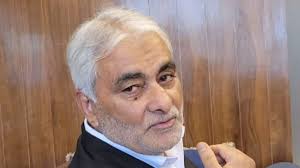
On March 25, Home Minister Amit Shah told Rajya Sabha that separatism in Kashmir had become history. He had some more proof to offer, announcing that two more separatist political outfits had renounced ties to separatism, identifying them as J&K People’s Movement and Democratic Political Movement (DPM). He urged all such groups to come forward and shed separatism once and for all.
“Two organizations associated with the Hurriyat have announced the severing of all ties with separatism. I welcome this step towards strengthening Bharat’s unity and urge all such groups to come forward and shed separatism once and for all,” he posted on X.
On the same day, senior leader of the DPM, Advocate Mohammad Shafi Reshi declared that he has cut all links to separatism.
“I have severed all ties with the DPM in 2018 during my tenure as chairman and have no connection with these organisations or any separatist entity since then,” Reshi said.
Incidentally, Reshi was a former aide of late Hurriyat leader Syed Ali Geelani. Criticising Hurriyat ideology, Reshi said that it has failed to address the legitimate aspirations and grievances of people of Jammu and Kashmir.
He reaffirmed his allegiance to India, calling himself a bonafide citizen committed to the supremacy of the Indian constitution.
J&K People’s Movement, on the other hand, was launched by the bureaucrat Shah Faesal in early 2019 and it was not a separatist party. However, within months of its formation, the centre abrogated Article 370, which granted J&K its special position in the Indian constitution. The party lost its raison d’etre when Faesal went back to the IAS, and shelved its activities.
The DPM leader Reshi’s change of heart does have a symbolic value. It reflects a profound change in the ongoing situation in the Valley, something that was unthinkable a few years ago. It is rarely that a political outfit has severed ties to separatism. However, last year, a major politico-religious party Jamaat-i-Islami decided to contest the Assembly election, effectively distancing itself from its separatist moorings. The party failed to win a single seat but did create some buzz in its strongholds in South Kashmir. In February, the same Jamaat leaders floated a new party christened as the Justice and Development Front (JDF), which will contest the upcoming grassroots elections. It is the third new political party in Kashmir since the abrogation of Article 370 in August 2019. First two were the Apni Party led by Altaf Bukhari and the Democratic Progressive Azad Party (DPAP) founded by the former Congress veteran Ghulam Nabi Azad. Both of them have not been able to make any mark since their advent. However, there are no full stops in politics and the past performance is never an indicator of what might happen in future.
Shah also highlighted some data to underline the redeeming change in ground situation. While in 2004, 1,587 incidents of violence were reported in J&K, the number dropped to just 85. Similarly, civilian deaths, according to home ministry figures, have fallen from 733 to 26, and security personnel casualties have declined from 331 to 31 over the same period. It is also obvious that the stone-pelting is now virtually non-existent. Strikes, once a routine method of expressing dissent, have also disappeared.
Going forward, will the existing calm hold? This is not an easy question to answer. While separatist politics has truly become extinct, separatist violence lingered and won’t as easily be quelled. It has already lasted for 35 years, going through its rise and fall, and may persist in the near future.

